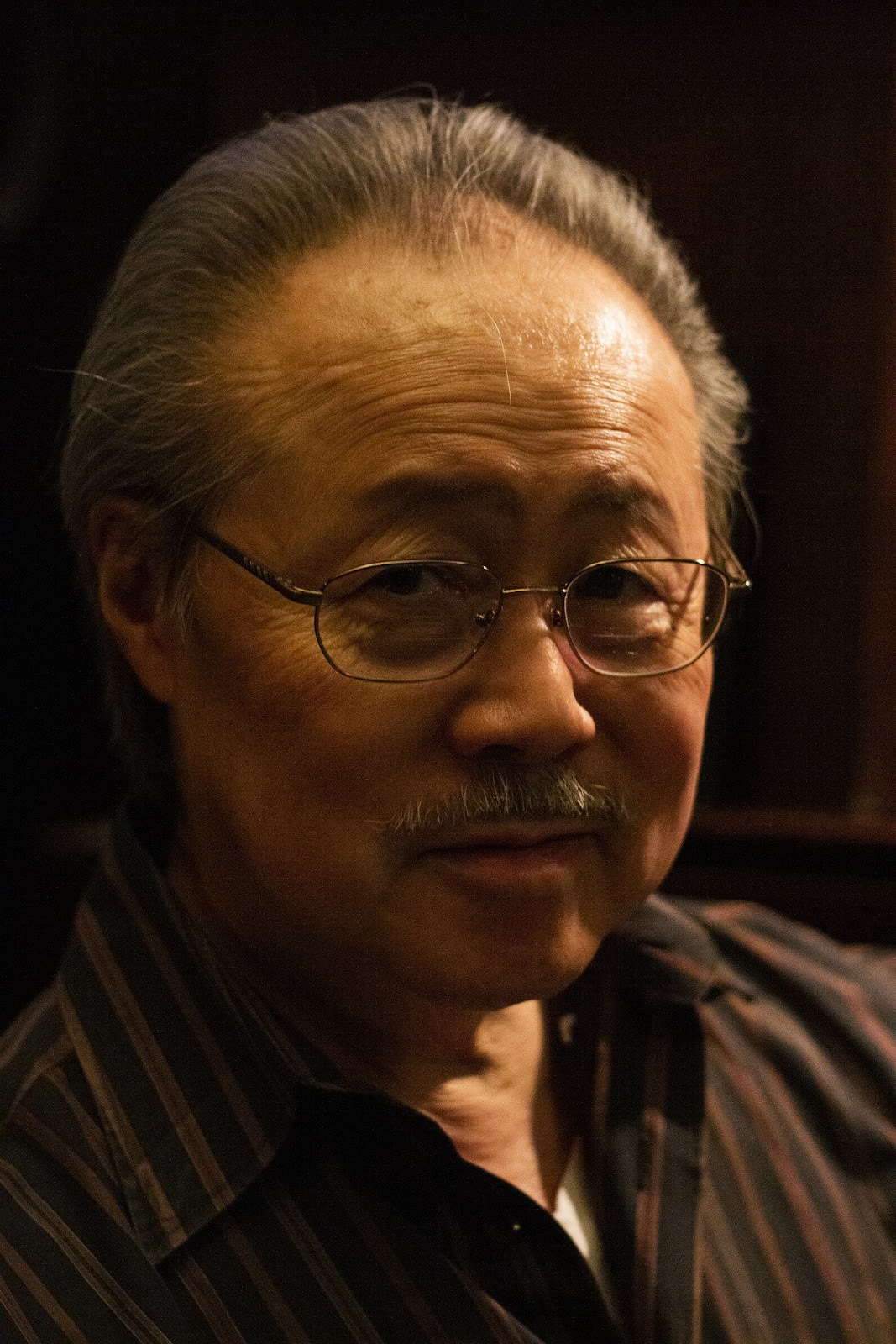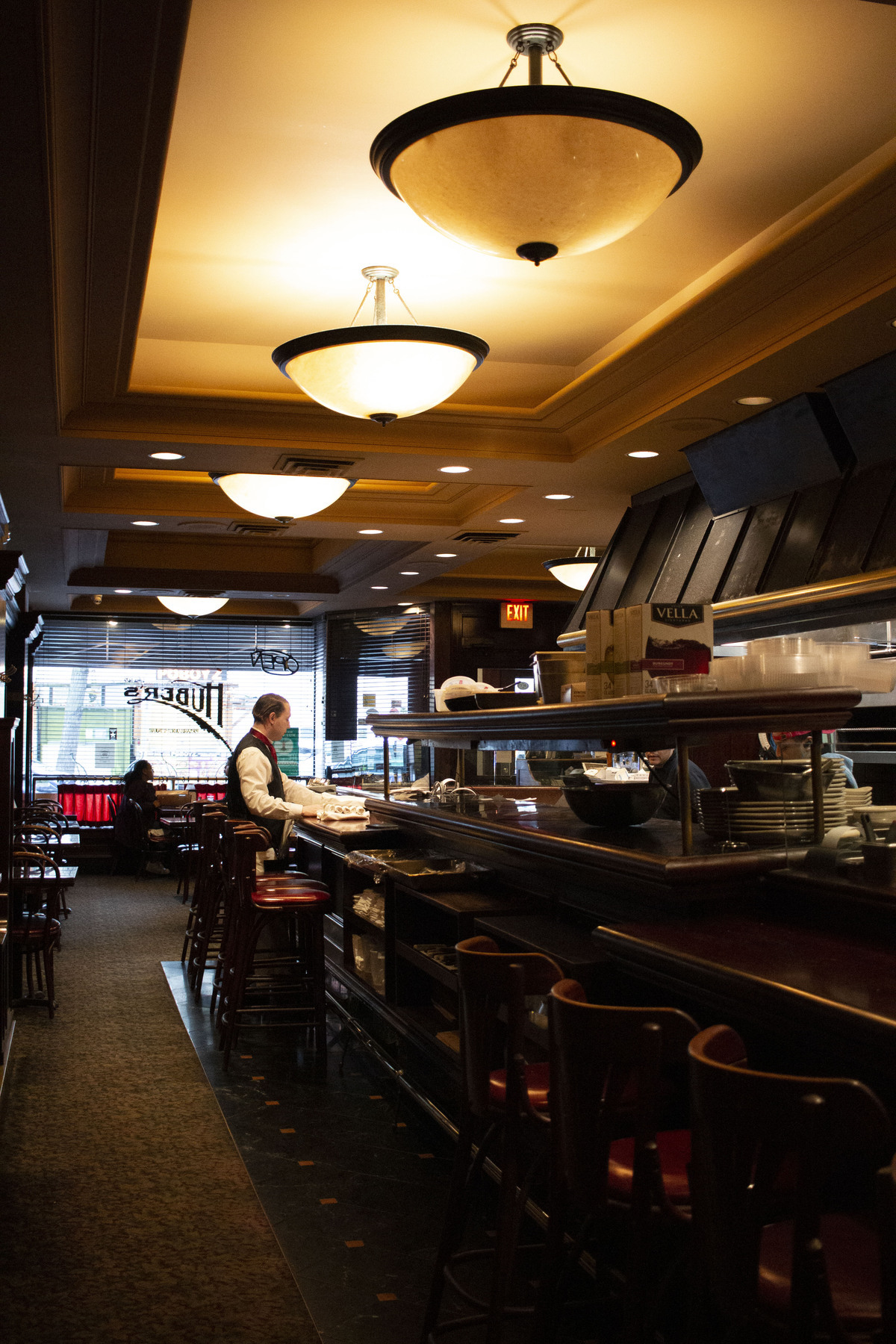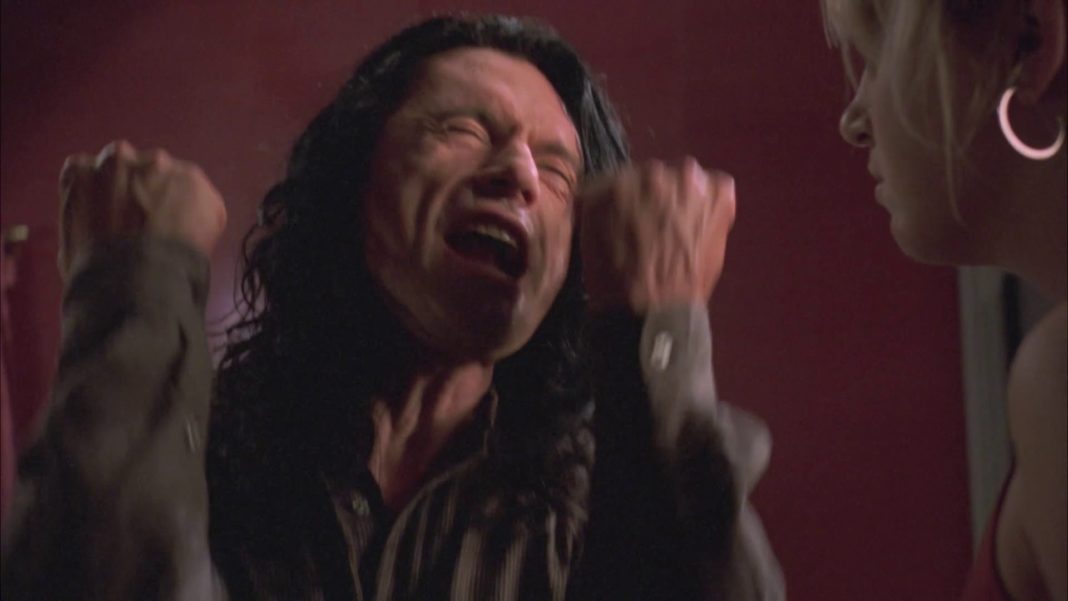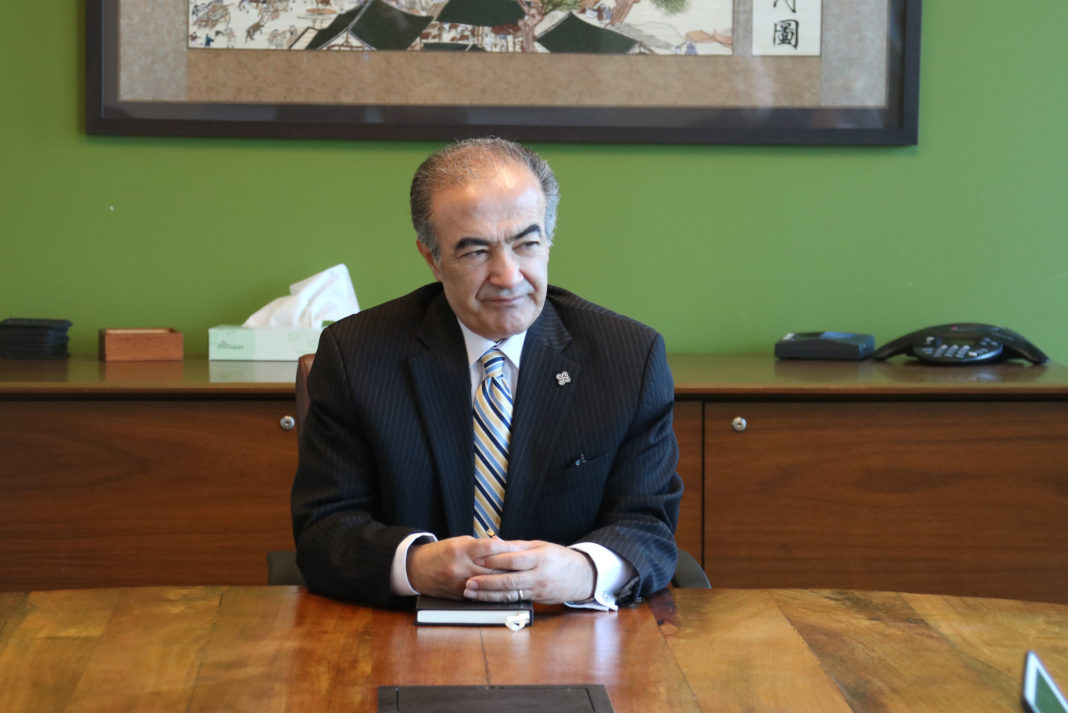In the fast-paced world of fine-dining, restaurants come and go as quickly as the trends they follow. According to a Bureau of Labor statistics survey, the average lifespan of a restaurant in the U.S. clocks in at less than five years. This makes Huber’s restaurant, at 130 years old, an extreme outlier by comparison—as well as earning it the distinction of being the oldest operating restaurant in Portland, Oregon.
In a city awash with trend-setting and trend-following restaurants, Huber’s has managed to carve out a niche for itself by sticking to its traditions while still carefully creating new ones.
“We don’t follow trends that closely, because we’re kind of a vintage restaurant,” said James Louie, one of the owners and managers of Huber’s. “We have to maintain our integrity and identity.”
Louie, who co-owns Huber’s along with two of his siblings, has been working full time at the restaurant for the last 47 years, giving him plenty of time to reflect on what has made Huber’s a stalwart dining venue for over a century. A third-generation owner of the restaurant, Louie and the family members that came before him have played a key role in the restaurant’s operations for most of its history.
“It’s been three generations now,” Louie said. “Because of our long family association with the restaurant, I feel it’s important to stay involved…we’re very hands-on.”
The family’s involvement with Huber’s goes all the way back to the turn of the 20th century, when Jim Louie, a cook and first-generation Chinese immigrant, began working as a chef for Frank Huber, the restaurant’s original owner and namesake. Jim Louie introduced several of the restaurant’s signature dishes, including the turkey and coleslaw, both of which are served to this day. He worked as a chef at Huber’s until Frank Huber died in 1912, after which Jim Louie took over the restaurant’s management and operations, working there until his own death in the 1950s.
In a strange twist of fate, Jim Louie died in the very restaurant that he had dedicated so much of his life to. After sitting down in a booth after a dizzy spell, Jim Louie passed away in Huber’s, several hours after closing.
“It wasn’t from anything he ate,” James Louie said. “It sounded like it was probably a heart attack.”
After Jim Louie’s death, his nephew Andrew Louie—James Louie’s father—took over full ownership of Huber’s. He later passed it onto his children, including James Louie.
Although he worked in the restaurant growing up, James Louie said that he didn’t consider taking over the business until later in life.
“At that time, I couldn’t envision my career being in the family business,” James Louie said. “Actually I wanted to be a professional baseball player…but God didn’t bless me in that way.”
After trying out different options in college, James Louie eventually came home to take over the business from his father.
“I had at least three years worth of credits, and I really did not know what to do for a career, when I finally decided to go into the family business,” he said. “I thought, ‘I might as well do this full time.’”
James Louie, who had a firm grasp of the restaurant’s historic character, played a delicate balancing act with creating new traditions while still maintaining the restaurant’s vintage roots.
“I would say it’s fifty-fifty,” he said, of his ratio of innovation to tradition. “Once we find a winner, we usually keep it on the menu awhile.”
One such example of James Louie’s approach to creating modern classics is the restaurant’s now-famous Spanish coffee, which has become a time-tested staple at Huber’s.
“I had no idea it was going to get this big,” James Louie said. “At the time, we were pretty much known as a lunch place…one of my goals was to turn around our evening business.”
To do this, James Louie knew he’d need a show-stopping dish to bring in dinner-hour guests. After watching Spanish coffee being served at the Fernwood Inn in Milwaukee, he said he immediately realized the drink was what he needed. His version was served with an elevated level of showmanship, incorporating a high-handed pour and flaming triple-sec to turn the drink into a spectacle worth watching.
The gambit worked—guests latched onto the fiery new menu item, turning the drink into a Huber’s mainstay that is just as recognizable as its signature turkey meal.
Along with the careful innovations that generations of Louie family members have brought to the restaurant over the decades, the family’s approach to service and employees has been a hallmark of their management style.
Jim Louie himself started the trend when he took over in 1912, hiring a staff almost completely consisting of first-generation Chinese workers. Jim Louie made a point of giving them a high-quality work environment that they would have struggled to find elsewhere at that time, during an era of extreme racial prejudice and discrimination.
“At that time there was a lot of racial discrimination going on,” James Louie said. “For a person fresh off the boat from China, there weren’t a lot of options…at Huber’s great-Uncle Jim gave them a good job, treated them well…and they were intensely loyal to him.”
The result was a consistent crew of staff members who grew into their roles over the course of years.
“We had no turnover,” James Louie said. “When you don’t have any turnover in the restaurant industry, staff do their jobs better, more efficiently…that helped Huber’s to stay popular, while uncle Jim was alive.”
Today, James Louie continues the family tradition of prioritizing staff.
“Our staff is our best resource,” he said. “They say you can salvage a mediocre meal with excellent service, but if you have terrible service, the food can be outstanding and people will have a bad feeling about their experience…the server has to be in a good mood.”
Lastly, a large part of the restaurant’s enduring success lies in the fact that it has already been around as long as it has.
“A lot of people, especially out of town guests, want to see Portland’s oldest restaurant,” James Louie said. “When people first come to Huber’s and we seat them in the old bar, they’re pretty awestruck.”
For these guests, the appeal of the past helps to establish Huber’s future, a future that James Louie says he feels optimistic about.
“People were eating turkey a hundred years ago,” said James Louie, referring to the restaurant’s signature dish. “A hundred years from now, they’ll still be eating turkey.”






